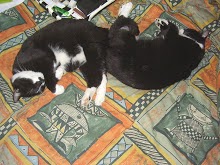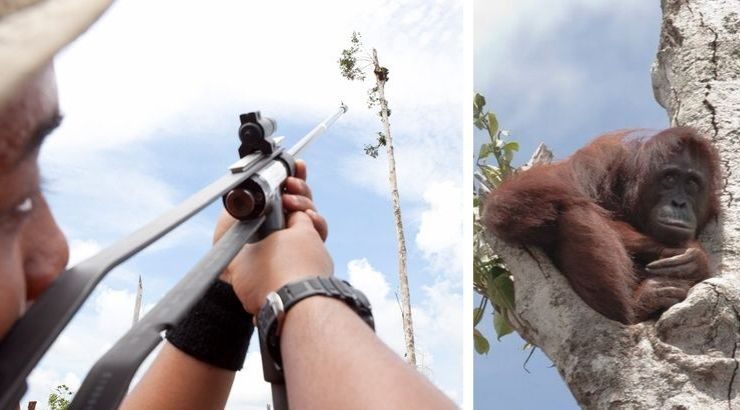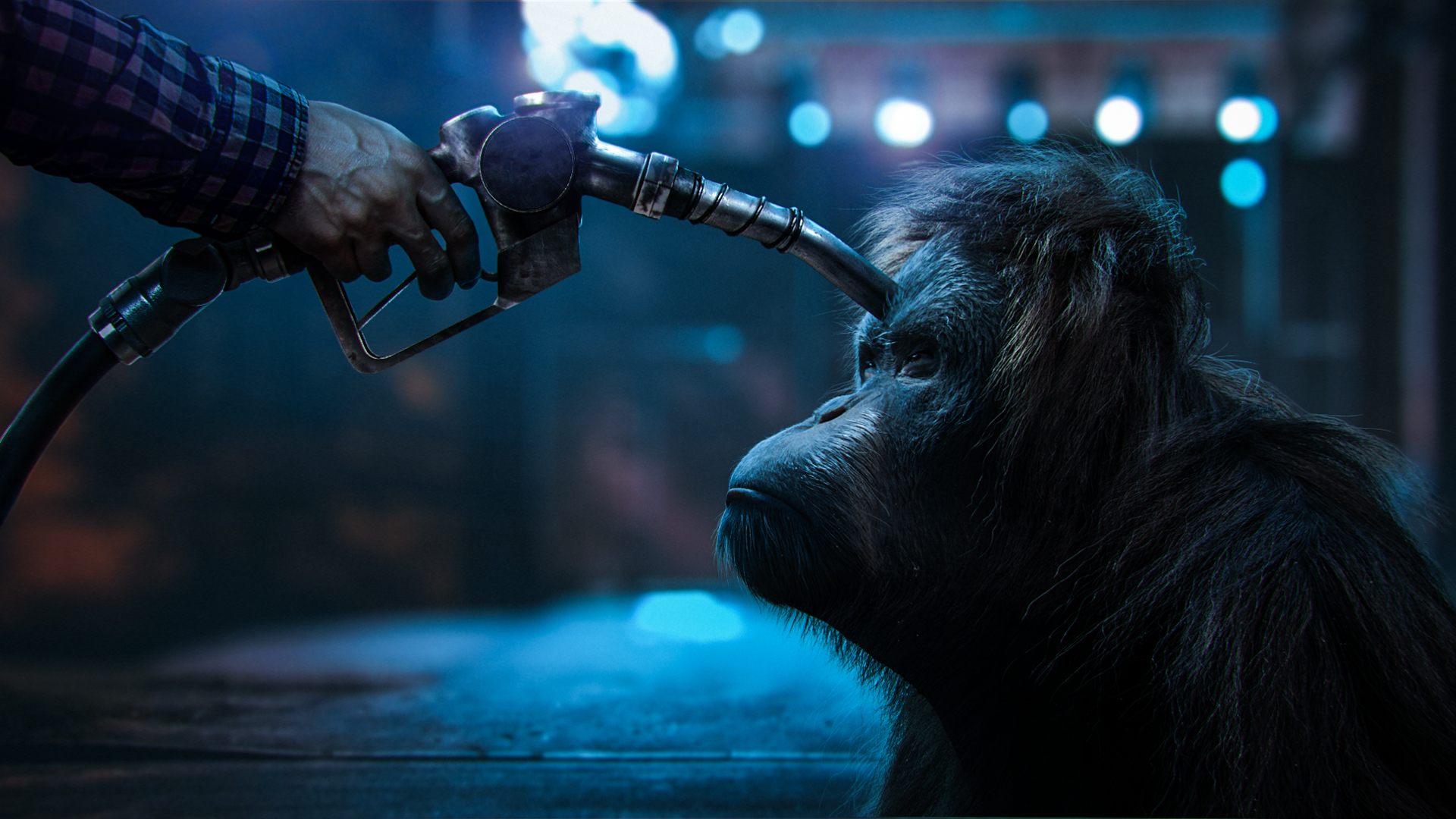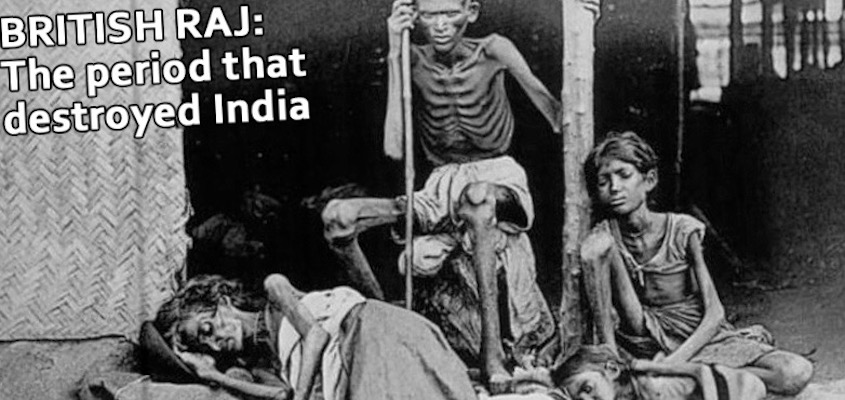In werkelijkheid is palmoliediesel drie keer zo slecht als gewone diesel, zo heeft de EU geconcludeerd na onderzoek...... Te gek voor woorden dan ook dat men pas vanaf 2023 gaat beginnen met het terugdringen van palmolie voor diesel en pas in 2030 moet het geheel afgelopen zijn met deze dieselsoort...... Kortom ook in deze laat de EU zien meer op te hebben met de maatschappijen die de aarde naar de kloten helpen dan met het volk waarvan men de belangen zou moeten behartigen als volksvertegenwoordiging...... (moet je nagaan: drie keer zo slecht als gewone diesel en alsnog toestaan dat daar nog jarenlang mensen onder moeten lijden en oerwoud voor wordt verbrand, schande!!!)
De uiterst grove leugen dat biodiesel goed is voor het milieu en de luchtkwaliteit, duikt overigens ook met de regelmaat van de klok op in ons land, gemiddeld bijna 1 keer per week is er wel een pias die met dit belachelijke verhaal hoopt de noodzaak tot echte actie tegen de klimaatverandering te kunnen tackelen..... (alsof we niet ook moeten stoppen met de enorme vervuiling vanwege het grote aantal mensen dat daar wereldwijd jaarlijks aan overlijdt en dat jaren eerder na een akelig ziekbed......)
ENI
gebruikt palmolie om haar diesel 'te vergroenen', echter zoals je
wellicht weet is niet alleen de verbranding van palmolie wel degelijk
schadelijk voor het milieu en de volksgezondheid, maar wordt de
lucht zeker niet schoner door extra productievan het
kankerverwekkende ultrafijnstof dat vrijkomt bij verbranding..... (deze fijnstof is gebonden aan de giftige
stoffen die bij verbranding van palmolie wordt geproduceerd......)
De vraag
naar palmolie, of die nu zogenaamd duurzaam is of niet, zorgt ervoor
dat men oerwoud blijft verbranden zoals in Indonesië en
Brazilië........ Er is maar één vorm van duurzame palmolie en dat
is de palmolie die niet wordt geoogst!! Hier de link naar een aantal vragen over palmolie, beantwoord door Milieudefensie. Deze in feite flutorganisatie durft niet te stellen dat palmolie slecht is voor de gezondheid, terwijl men in de beantwoording wel aangeeft dat palmolie vol zit met verzadigde vetten en die zijn wel degelijk slecht voor de gezondheid, sterker nog: Milieudefensie geeft zelfs aan dat verzadigde vetten cholesterol verhogend zijn en daarom hart en vaatziekten veroorzaken (daarnaast veroorzaakt het obesitas)....... Ongelofelijk!!
Het
volgende artikel komt van Transport & Environment
en werd geschreven door Nico Muzi:
Eni fined €5m for deceiving consumers over its 'green’ diesel, Italian watchdog rules
Italian
regulators today fined
Italy’s oil giant Eni over advertisements on TV and in
newspapers, digital media and petrol stations that falsely claimed
Eni Diesel+ was ‘green’. The watchdog states that the marketing
campaign deceives consumers when it claims that the ‘green’
diesel has a positive impact on the environment, saves fuel and
reduces air pollution. It is the first ruling against greenwashing in
Italy’s history.
Nico
Muzi January 15, 2020 - 13:13
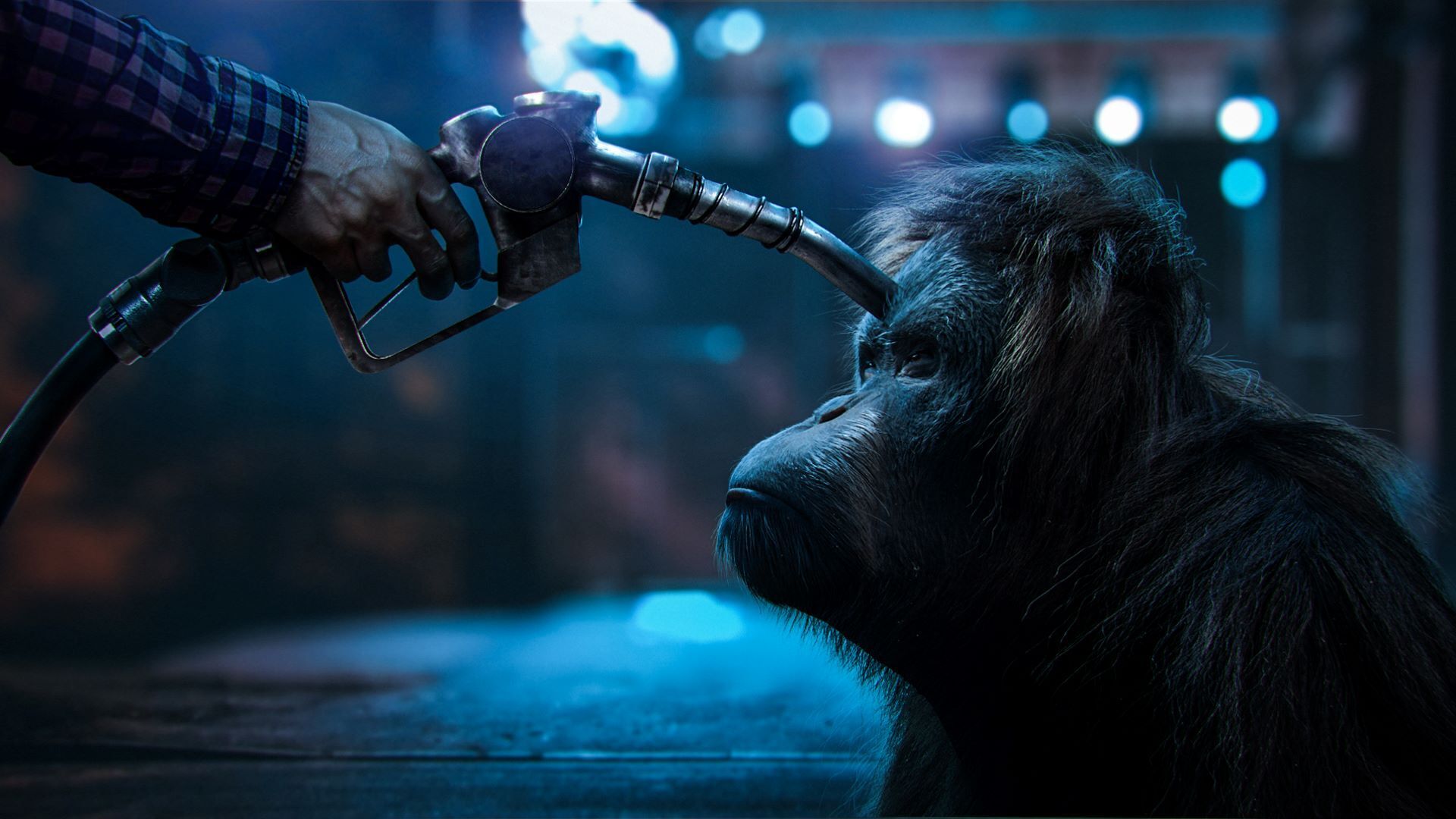
The watchdog’s decision delivers a blow to attempts by fossil fuel companies to portray biofuels to politicians and the public as environmentally friendly and part of the solution to climate change. The ruling follows three extensions requested by Eni to provide further information and data to prove their case.
Francesco Luongo, president of the consumers’ association Movimento Difesa del Cittadino, said: “Today’s Authority decision represents the first important sanction for ‘greenwashing’ over misleading advertising messages about how green a product really is.
The protection of the environment is a fundamental challenge in the evolution of the global economy, as stated by the Green New Deal (GND), approved yesterday by the EU Commission, and claims should not be distorted, or worse falsified, by companies through unscrupulous marketing that translates into unfair commercial practices to the detriment of consumers”.
Stefano Ciafani, president of Legambiente, said: “Today’s a historic decision because for the first time in Italy we officially talk about greenwashing and finally this big deceit against citizens, performed by one of greatest climate enemy, ENI, is exposed. The Authority proved we were right. But this is not enough. It’s high time for the Government to finally bet on truly sustainable development, starting right now and stop subsidies for palm oil diesel, until finally putting an end to all direct and indirect subsidies to those sectors causing climate change.”
Eni Diesel + is a new diesel fuel that is 15% composed of HVO (Hydrotreated Vegetable Oil) from Eni’s Venice refinery. This ENI refinery makes HVO from crude palm oil and its derivatives, as shown by official data from the governmental energy agency Gestore Servizi Energetici.
The watchdog ruling states that “it’s particularly deceitful to use the denomination “Green Diesel’ and the qualifications ‘green’ and ‘renewable’ to refer to the HVO component of the product”, mainly because of the indirect land-use change emissions associated with palm oil use. It also argues that there's no justification or calculation that justifies the 40% reduction in air pollution.
Italian green NGOs urge the government to stop incentives for the use of palm oil in diesel, as over 50,000 Italians have requested already at www.change.org/unpienodipalle.
Italy is the second largest palm oil biodiesel producer in the European Union. More than half (54%) of all palm oil and derivatives imported into Italy in 2018 was used to make biodiesel, mainly at Eni’s refinery at Porto Marghera, Venice. The palm oil comes predominantly from Indonesia and, to a lesser extent, from Malaysia, two countries with notable deforestation rates in the past two decades.
Europe labelled palm oil in diesel as unsustainable
Europeans are increasingly eating less and less palm oil but are inadvertently burning more and more in cars and trucks. Last year 65% of all the palm oil imported into the EU was used for energy. 53% of all palm imports was used to make biodiesel for cars and trucks - an all-time high - and 12% to generate electricity and heating - another record.
Palm oil used for biodiesel grew again in 2018 - by 3% - while the use of palm oil to make food and animal feed dropped significantly, by 11%. This trend proves that the imported deforestation from palm oil is mainly driven by EU and national biofuels policy.
Last March, the EU decided that palm oil is not a green fuel and should not be promoted because it causes deforestation. The use of palm oil in diesel will be gradually reduced from 2023 and should reach zero in 2030, with some exemptions. Thus, Italy, like any other EU country, can amend today the national targets for renewable energy in transport to remove incentives for using palm oil and its derivatives in biodiesel,
Veronica Aneris, manager of Transport & Environment in Italy, said: “There is no such thing as green diesel made from palm oil or any other food crop because they cause deforestation. Oil companies need to stop trying to mislead drivers and politicians with the fake claim that biodiesel protects the environment and our health. Instead they should invest in proper clean fuels such as renewable electricity. The government should push oil companies to do their fair share to decarbonise the economy.”
Palm oil is known to be an important driver of the destruction of rainforests and wildlife.
According to a study for the European Commission, biodiesel from palm oil is three times worse for the climate than regular diesel when indirect emissions from changes in the use of land are accounted for.
=================================
Zie ook:
''Nieuwe 'topman' tabaksgigant Imperial Brands, met een heel smerig verleden'
'FMO ('ontwikkelingsbank' met overheidsaandeel) steunt palmolieplantages in Congo waar arbeiders als beesten worden behandeld'
Voor meer berichten over palmolie, klik op het betreffende label, direct onder dit bericht.
Zie ook:
''Nieuwe 'topman' tabaksgigant Imperial Brands, met een heel smerig verleden'
'FMO ('ontwikkelingsbank' met overheidsaandeel) steunt palmolieplantages in Congo waar arbeiders als beesten worden behandeld'
Voor meer berichten over palmolie, klik op het betreffende label, direct onder dit bericht.
